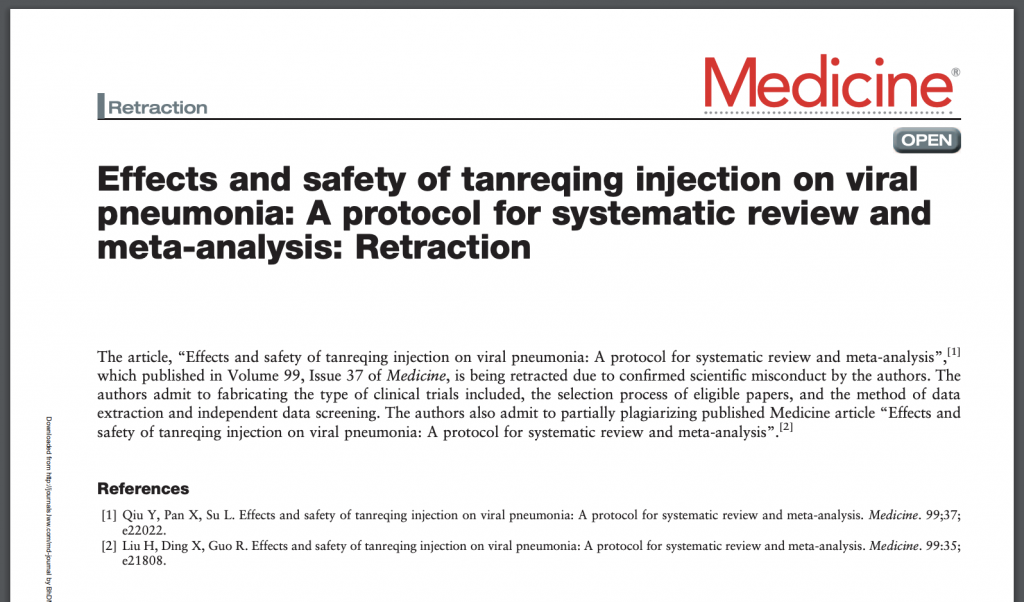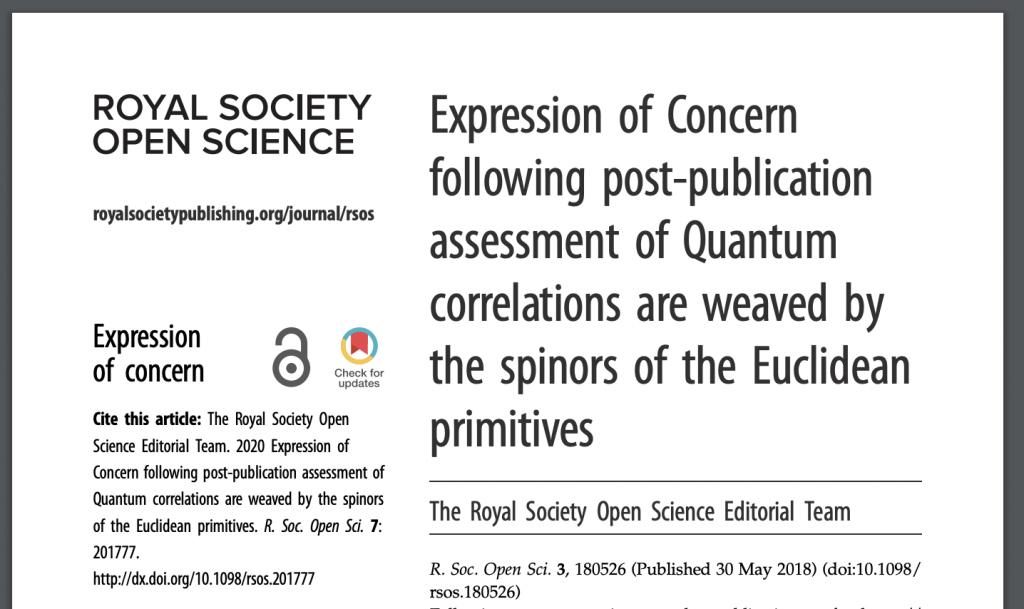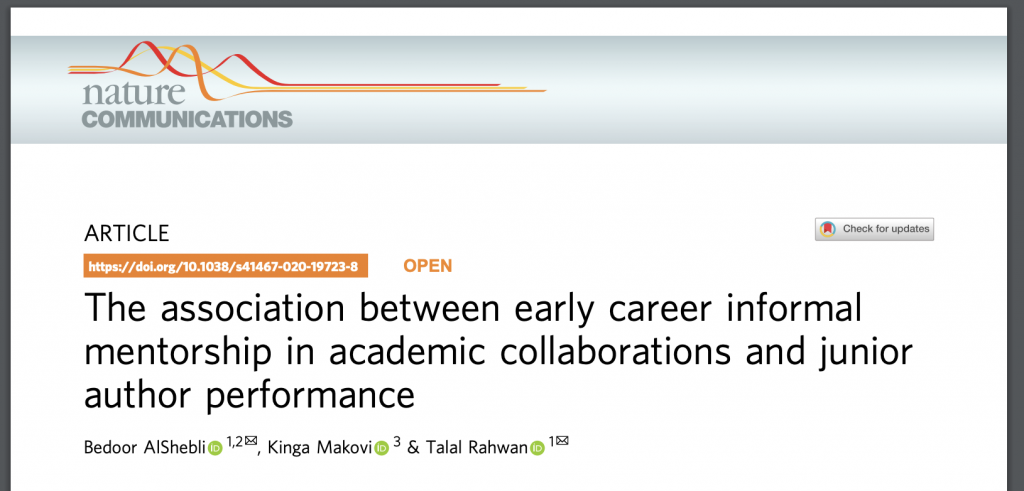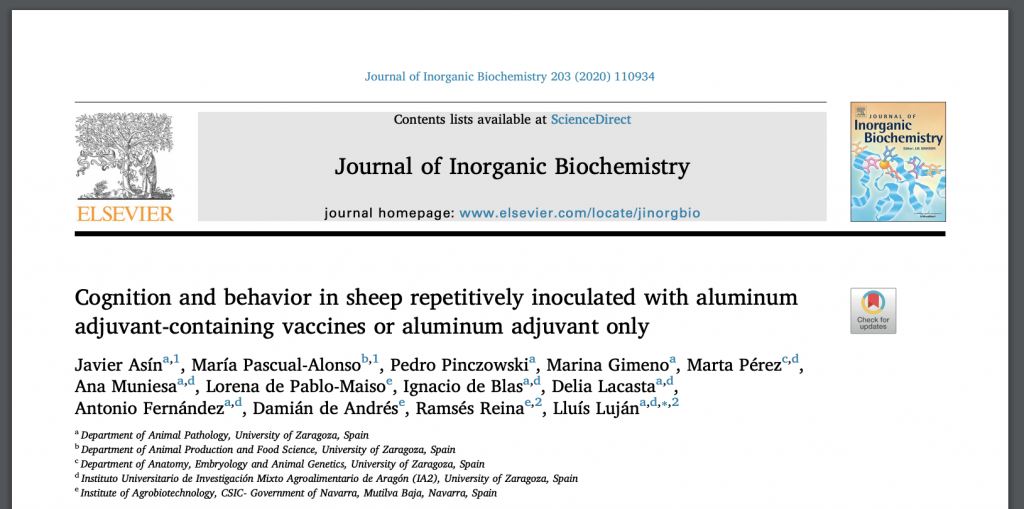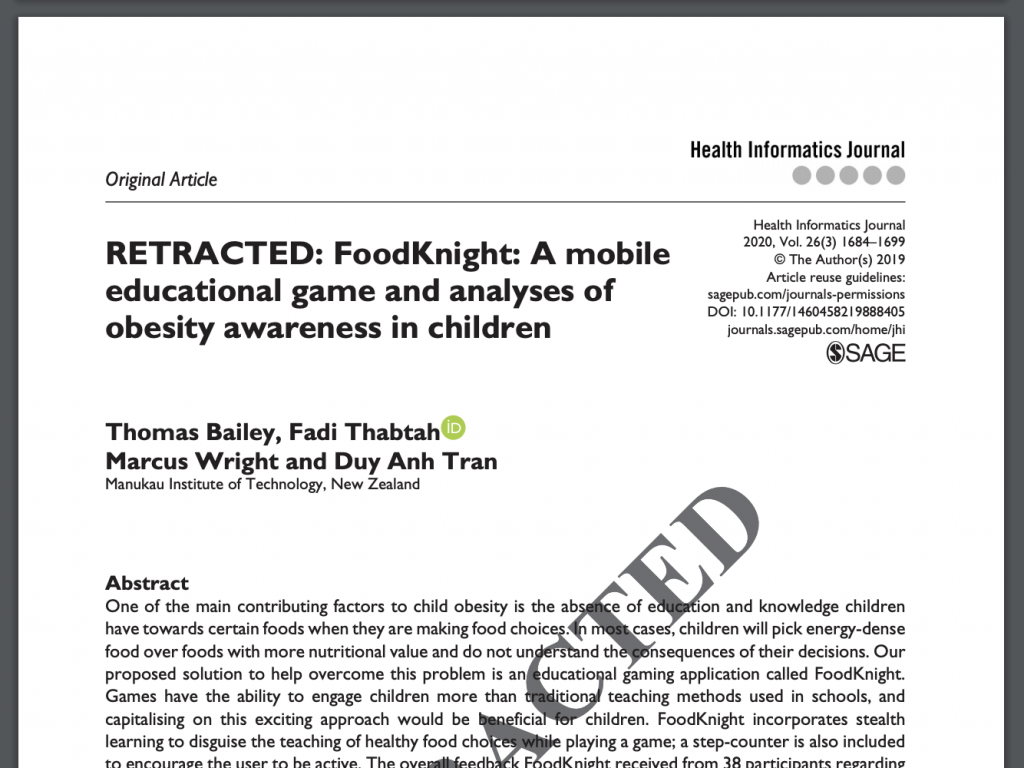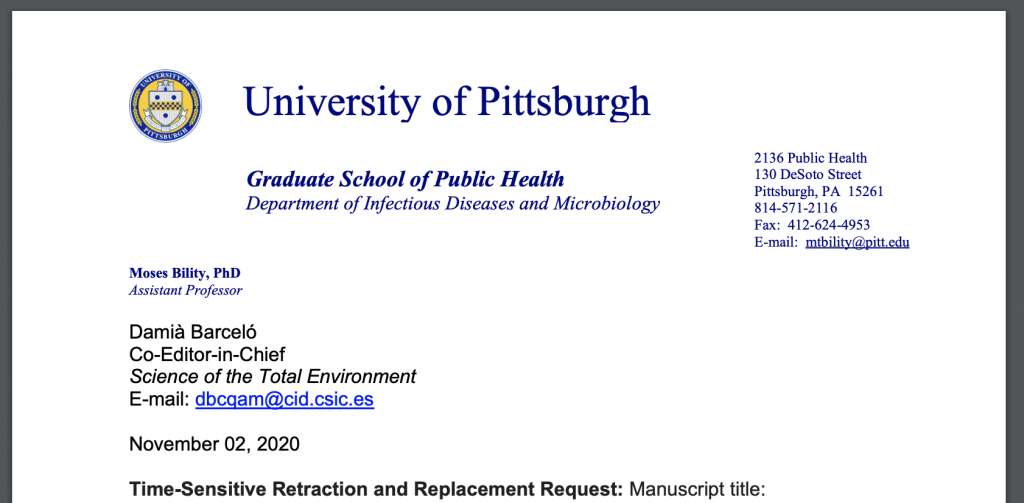Dove Press last week retracted 14 papers by Marty Hinz, a Minnesota doctor who caught the attention of the U.S. FDA years ago for hyping supplements sold by a company he once owned.
The 14 articles — on the use of supplements to treat conditions ranging from Crohn’s disease to Parkinson’s disease — were among 20 that the publisher slapped expressions of concern on earlier this year. The other six articles flagged in April remain under review, a spokesperson for Taylor & Francis, which owns Dove, tells Retraction Watch.
That move came two and a half years after Stephen Barrett — a U.S. physician and founder of Quackwatch — alerted Dove to his concerns about Hinz’s failure to disclose conflicts of interest on the papers. Barrett says Hinz has used those papers to support claims that supplements made by Hinz’s former company, now owned by his daughter but from which he has received royalties, are effective in treating various conditions.
Continue reading Publisher retracts 14 papers by doctor who ran afoul of U.S. FDA for marketing supplements


